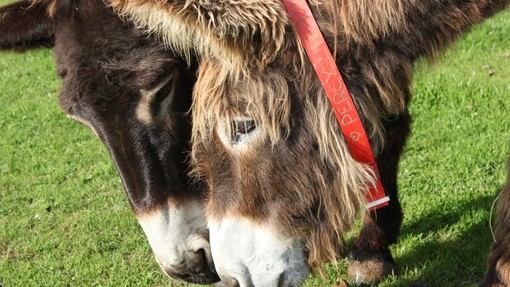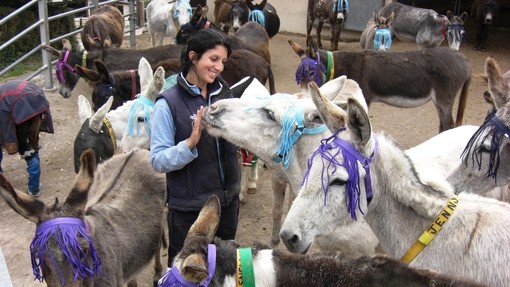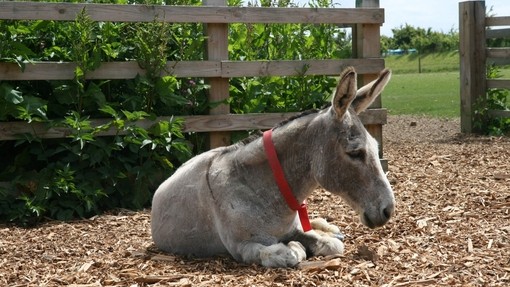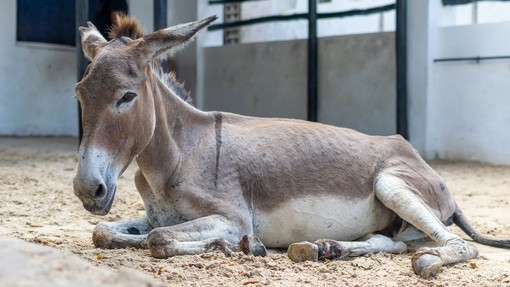Top lungworm facts
- Donkeys are assumed to be the natural host of this parasite.
- Donkeys tolerate even a large infestation of lungworms without apparent signs; while it can cause severe coughing in horses and ponies that contract the parasite.
- Lungworm larvae can live on pasture for a considerable length of time, so good pasture management can help reduce infection.
- Faecal sampling is the best way to diagnose lungworm in donkeys.
- Donkeys, horses and ponies can live together quite safely, provided a de-worming programme as advised by your vet is followed.
We are also keen to clear up misconceptions about parasite infection levels in donkeys in the UK and have recently presented the results of a study assessing parasite infection levels in donkeys to vets and parasitologists.
It is often quoted that a large percentage (up to 70%) of the UK’s donkeys are infected with lungworm. Our study to determine levels of parasite infection in donkeys new to The Donkey Sanctuary, over a four year period, showed that only 4% were infected with lungworm.
References
- Donkeys Parasites in the UK; Infection Levels, Treatment Intervals and Anthelmintic Use. Proceedings of the Worldwide Association for the Advancement of Veterinary Parasitology, Calgary, 2009.
- The Complete Book of The Donkey, 2009.
- The Professional Handbook of the Donkey - 4th Edition, 2008.




